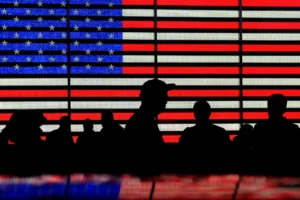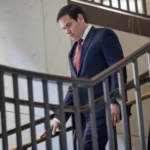LEGISLATIVE ROUNDUP: Wyoming Lawmakers Provide Tax Relief, Limit Voting Options (Part 1)
Crossover voting banned and early voting shortened by Legislature
- Published In: Politics
- Last Updated: Mar 08, 2023
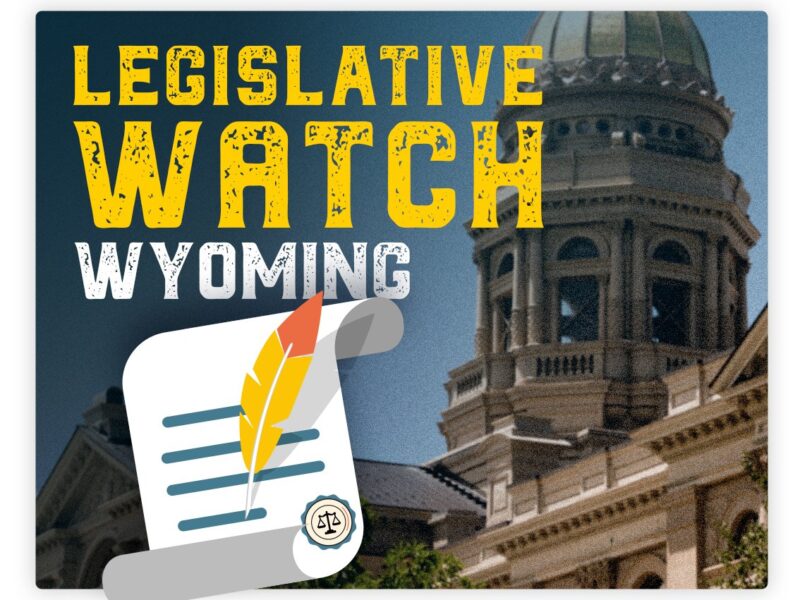
By CJ Baker
Special to the Wyoming Truth
Over the past two months, lawmakers, lobbyists, activists and others gathered in Cheyenne to debate nearly 500 pieces of legislation covering the gamut of Wyoming life.
Most of the bills failed for one reason or another; some never got a hearing. But when the dust settled Friday on the at-times contentious session, Wyoming’s citizen Legislature had passed 196 bills. They included new restrictions on abortions and recognition of July 20 as “Moon Landing Day.”
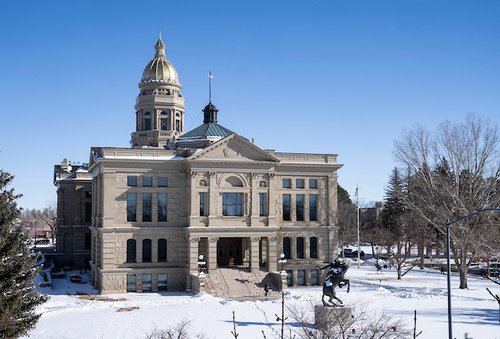
Property tax relief and the state’s elections were the subject of dozens of bills — and they’re the focus of this first part of the Wyoming Truth’s look at key legislation from the 2023 General Session.
Some property tax relief on the way
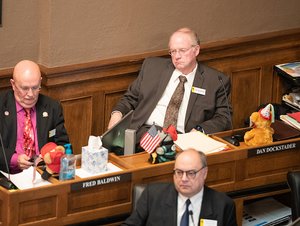
State lawmakers can’t do anything about the Californians, Washingtonians or Wisconsinites who moved in and paid way too much for the house next door. But the Legislature is taking some action to reduce the property taxes that have been rising alongside your home’s value.
House Bill 99 expands an existing property tax refund program, allowing homeowners to qualify for some cash back if they make as much as 125% of their county’s median household income (up from 75%). An estimated 6,000 additional households are now expected to qualify, and their refund can be as high as 75% of their prior year’s taxes (up from 50%).
“I’m grateful that the Legislature saw fit to deliver a bill that provides a measure of targeted relief for those that need it most, especially our senior citizens and those living on fixed incomes,” Gov. Mark Gordon said in signing the bill.
As a Wyoming voter, you’ll also be asked to weigh in on the issue in the 2024 general election: A proposed amendment to the Wyoming Constitution would give the Legislature the authority to provide new tax relief just for homeowners.
“I suggest they’ll probably support it,” Sen. Dan Dockstader (R-Afton) said of voters, “because they’ve had a belly full of increasing property taxes, while watching us spend in other areas.”
The Legislature also agreed to study how the state might begin to base property taxes on the price the owner originally paid rather than what the property is currently worth. However, the acquisition value study and the constitutional amendment wouldn’t lead to any changes until 2025 at the earliest.
Over a dozen other proposals to tackle property tax relief died during the session.
Saving up for the future
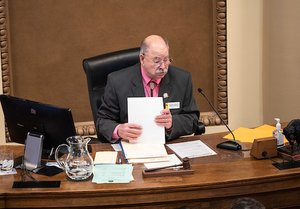
Lawmakers opted to fatten Wyoming’s piggy bank this session, socking another $1.4 billion into savings. And that was after fully funding K-12 education and giving roughly 8% raises to state employees.
Legislative leaders described the supplemental budget bill as being fiscally conservative — with $3.50 in savings for every $1 of spending — while also investing in economic development and education.
“This budget was built with our children, grandchildren and Wyoming’s future generations at the center of our work,” Senate President Ogden Driskill (R-Devils Tower) said. “Bottom line: this bill means a stronger Wyoming.”
However, House members affiliated with the conservative Wyoming Freedom Caucus opposed the final version of the supplemental budget, wanting less spending and more saving.
No raises, but higher payments for lawmakers
While it’s not a raise, taxpayers will be offering a bit more money to Wyoming lawmakers in these high inflation times. Though they rejected bills that would have raised their salaries or provided health care, lawmakers raised the per diem they can receive to offset their meals, travel and lodging while in session or attending committee meetings.
The daily reimbursement rate is set to jump from $109 to around $157, depending on the locale, season and adjustments made by the federal government. The payment hasn’t been updated since 2005.
“I know we’re loathe to do it,” Sen. Mike Gierau (D-Jackson) said, but he noted the current rate only covers a tank of gas. Gordon has not yet acted on the bill. In the meantime, lawmakers continue to have the option of being reimbursed for their actual expenses instead of taking the per diem rate.
Meanwhile, lawmakers made it legal for town mayors and council members to work for free. Previously, turning down a salary could get you a write-up from state auditors.
Pick your party well ahead of the primary
When it comes time to selecting lawmakers and other officials, no longer can you wait until primary election day to pick a party. After years of debating the issue, lawmakers have effectively banned “crossover voting.”

A new law requires voters to stick with whichever party they’re affiliated with at the time the filing period opens, in mid-May of election years. It eliminates the ability for, say, Democrats to become Republicans at the last minute and weigh in on GOP candidates in the primary.
A contingent of Republicans spent years trying to change the law, but didn’t succeed until this session (with the bill surviving a near death experience).
Rep. Cyrus Western (R-Big Horn) said he was moved to action after hearing from many everyday voters that, “This party switching thing, I think it’s time we button this one up and we get it taken care of and we put it behind us.”
However, opponents of the bill suggested it will just prompt Democrats and unaffiliated voters to permanently become Republicans; after the legislation became law, Rep. Karlee Provenza (D-Laramie) encouraged voters to switch and run for leadership positions in the GOP.
“If Republican lawmakers want to suppress your right to vote in the election of your choosing, then gut their party votes of conservative committee seats,” Provenza tweeted.
In other election changes:
• Early and absentee voting, which had started 45 days before an election, will now begin 28 days ahead of election day. (Voters who are overseas or in the military can still get their ballot 45 days early.)
• You’ll need to show your ID when picking up an absentee ballot in person, as the Legislature closed a loophole in its 2021 voter ID bill.
• Second Amendment enthusiasts can now show their concealed carry permit when they vote, as it’s been added to the list of acceptable identification.
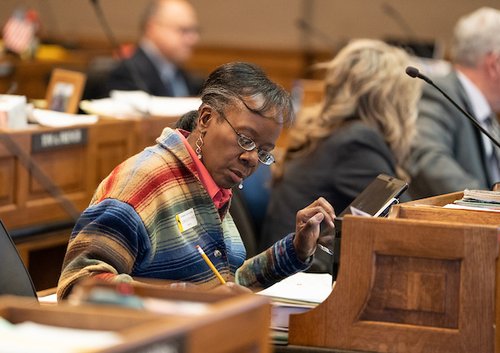
Other proposals that would have changed the state’s election processes more dramatically — such as an effort to add a third, run-off election to the cycle and another to take election oversight away from the secretary of state — failed to gain traction.
Don’t distribute absentee forms
Thanks to tactics employed by then-U.S. Rep. Liz Cheney’s campaign last year, it may soon be illegal for candidates to send out unsolicited absentee ballot request forms to voters.
Just before last August’s primary, Cheney sent a mass mailing that encouraged voters to request an absentee ballot. Although it was labeled as being from the Cheney campaign, the mailer also contained the language “OFFICIAL ELECTION DOCUMENT ENCLOSED.” Some voters were angry and confused.
“Even though I don’t believe … that it was meant to do harm, it did have an appearance of evil and deception,” Sen. Lynn Hutchings (R-Cheyenne) charged on the Senate floor.
The new law makes it a misdemeanor crime to send an absentee ballot request form to a voter, unless they request one. Elections officials are exempted from the ban, but candidates are not. The bill awaits action from Gordon.
Check back tomorrow for part two.


